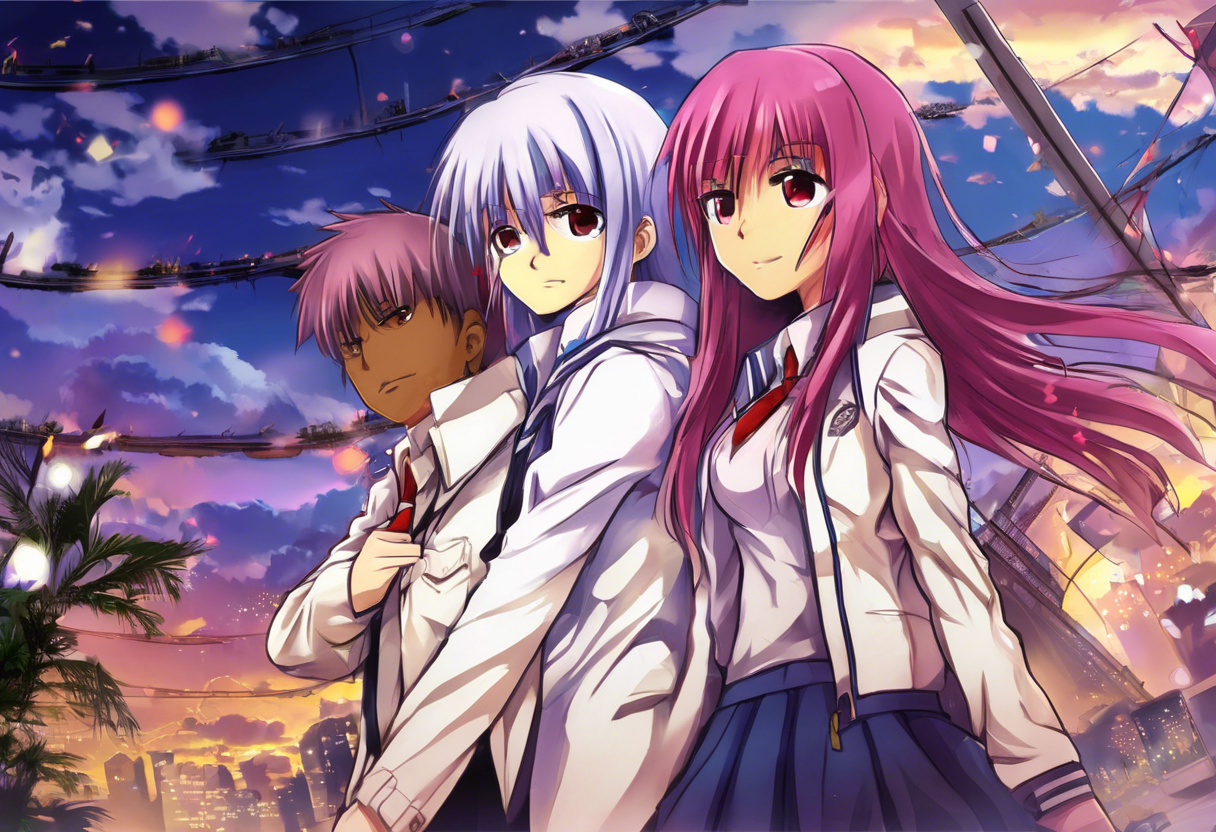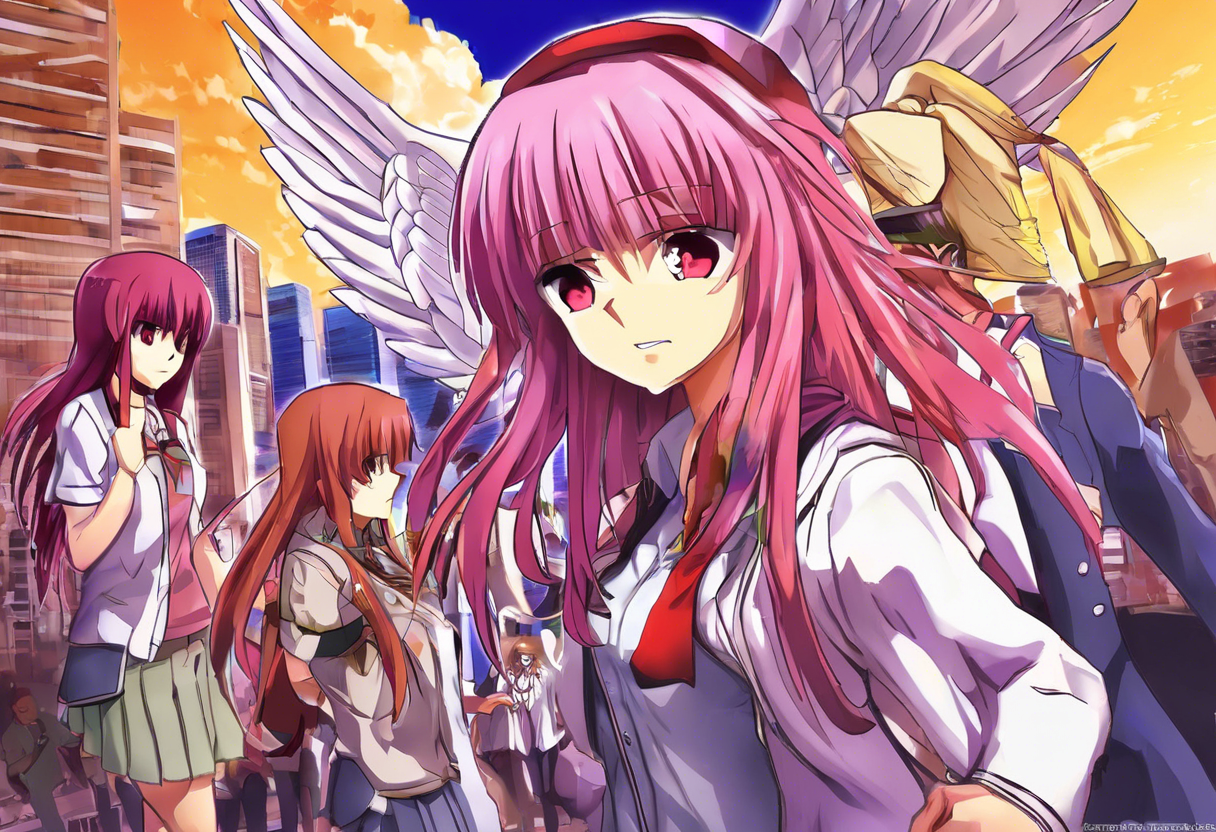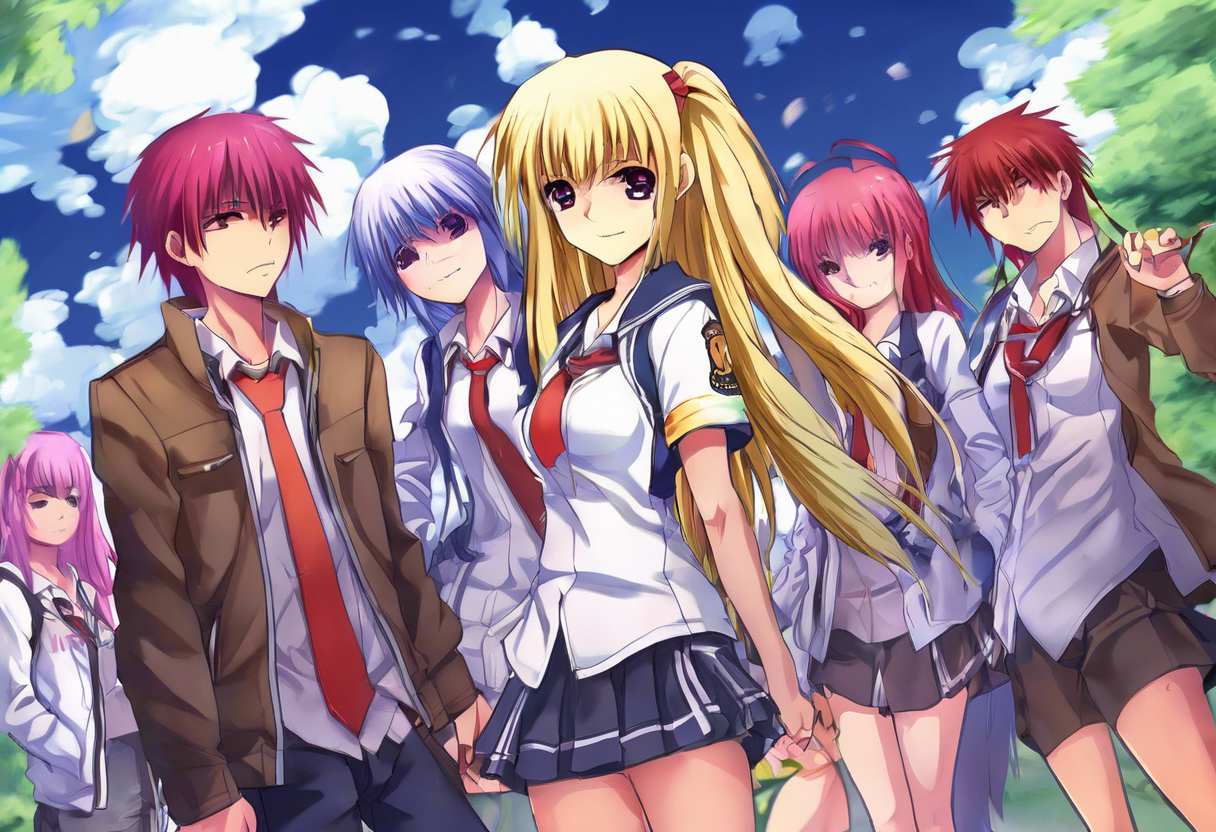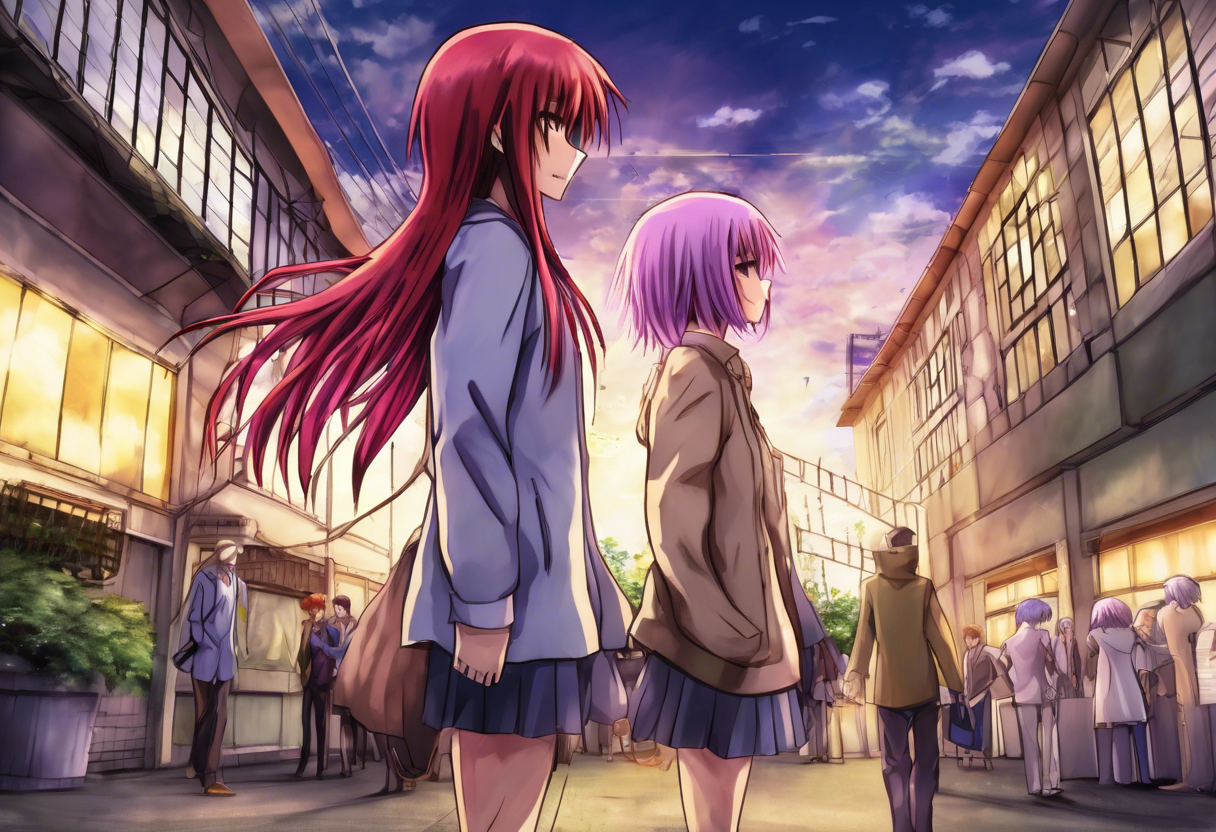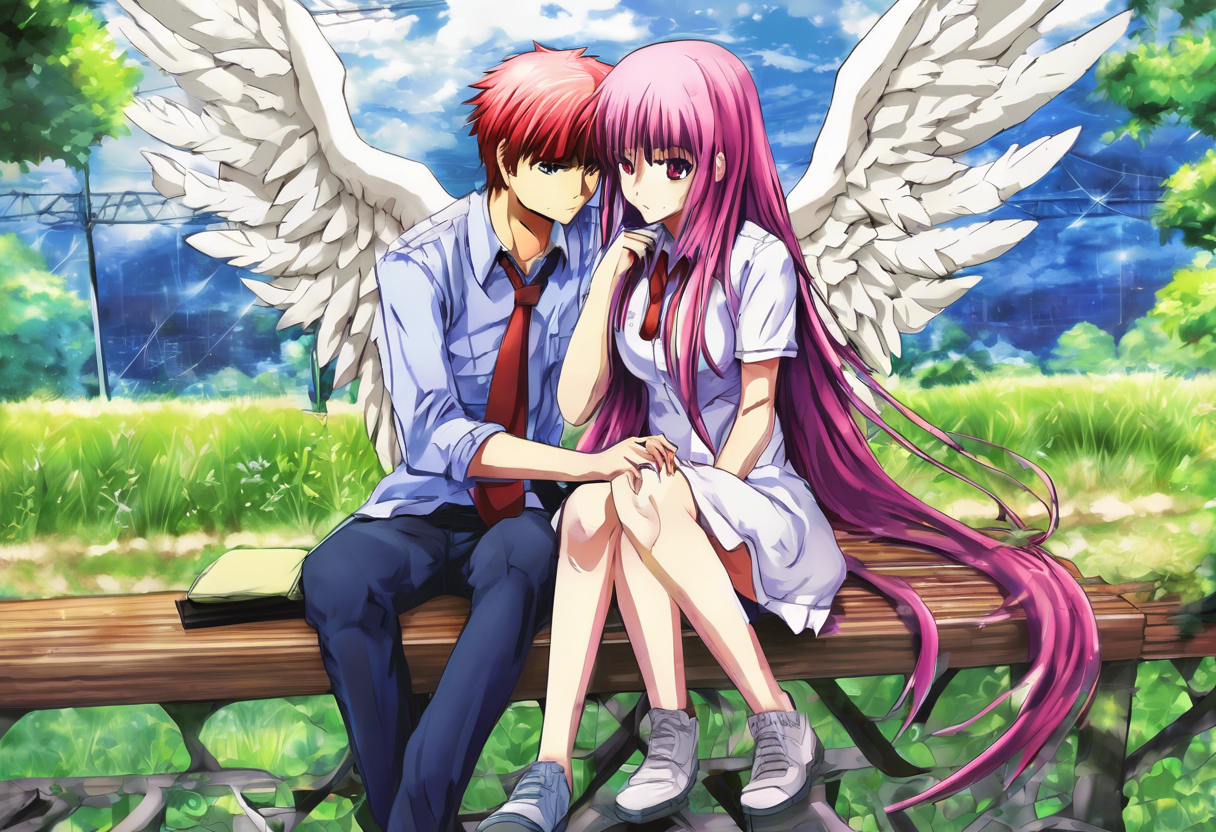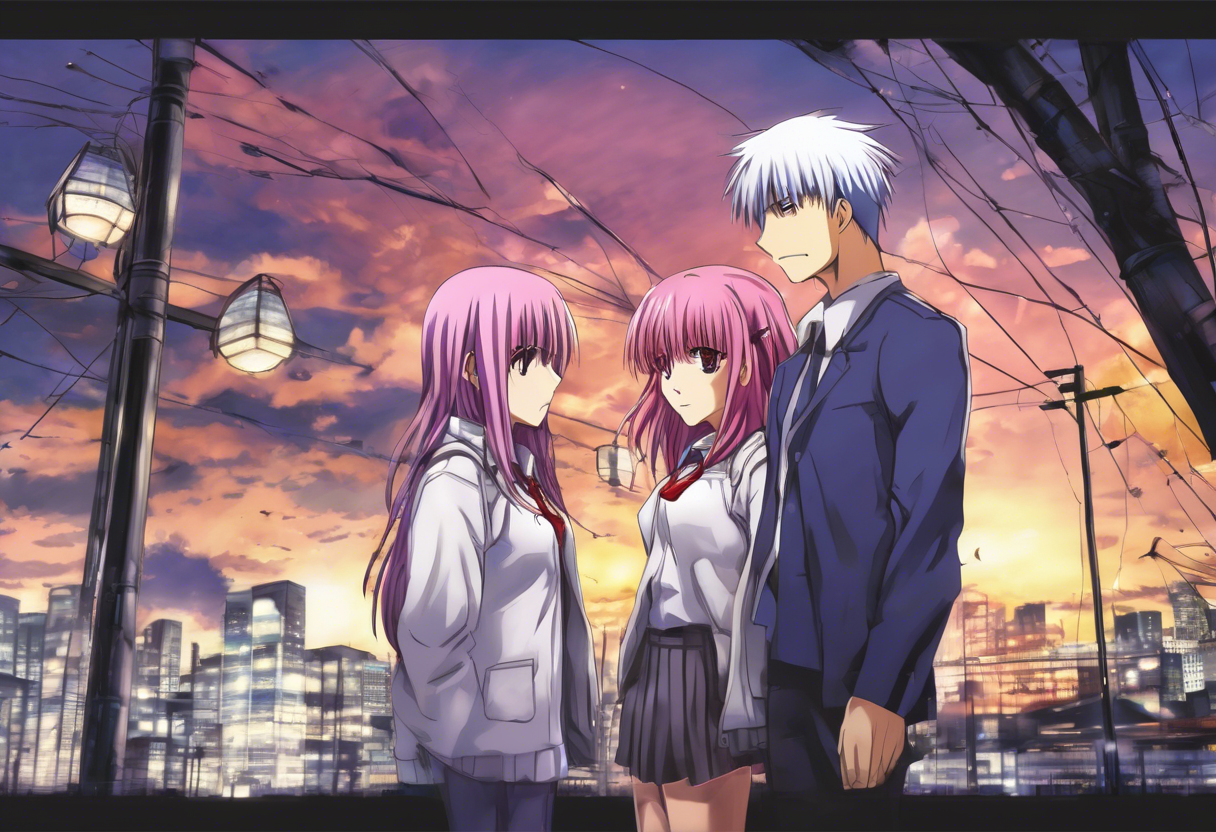Angel Beats! Episode 9, titled “In Your Memory,” stands out as a poignant and introspective installment within the anime series Angel Beats!, which blends supernatural elements, action, and emotional drama. This episode was produced by P.A. Works and Aniplex and initially aired in Japan on June 5, 2010. Directed by Seiji Kishi and written by Jun Maeda—who also composed the series’ music—Episode 9 delves deeply into the backstory of Yuzuru Otonashi, the show’s protagonist, exploring his life and death through a flashback that enriches the narrative and emotional impact of the series. This episode is distinguished within its genre for its careful focus on character development and emotional storytelling rather than action or spectacle, providing a contemplative pause that enhances viewers’ understanding of Otonashi’s motivations and the overarching themes of the afterlife depicted in Angel Beats![1][2].
The episode opens with the aftermath of a tense conflict involving Kanade Tachibana, the enigmatic student council president. Kanade lies comatose after a confrontation, leaving the characters and audience uncertain about her fate and whether she has retained her former antagonistic nature. The SSS (Shinda Sekai Sensen or Afterlife Battlefront), led by Yuri, anxiously awaits her awakening, torn between hope and dread. However, rather than focusing on this present tension, the narrative shifts to a detailed recounting of Otonashi’s final days in the living world, before his arrival in the afterlife.
Otonashi’s flashback reveals that he did not die immediately but instead suffered a prolonged struggle for survival after a devastating train accident. Trapped in a collapsed subway tunnel with around a dozen other survivors, he faces a harrowing ordeal marked by dwindling supplies and despair. Despite the bleak circumstances, Otonashi’s medical knowledge as a student drives him to act as the group’s caretaker and leader. He administers first aid to the wounded, rationing scarce food and water, and maintains a calm spirit to prevent the group from succumbing to panic. This extended ordeal highlights his inherent kindness and selflessness, as he often sacrifices his own comfort and well-being for others. Over the course of several days, the group faces starvation and dehydration, and the psychological strain begins to erode their hope that rescue will arrive.
As days slip by without rescue, tensions increase within the group, exemplified by conflicts over dwindling resources such as water. Otonashi’s compassionate but firm leadership helps to manage the growing despair and mistrust among the survivors. Despite his efforts, the situation worsens, with survivors succumbing one by one to exhaustion and dehydration. Otonashi himself suffers internal injuries—possibly bleeding—though he continues to press on, motivated by his desire to keep everyone together and hopeful.
In a deeply emotional moment near the end of the flashback, Otonashi, realizing that rescue will not come and his own death is imminent, chooses to sign a donor card, encouraging his fellow survivors to do the same. This gesture exemplifies his enduring hope to turn tragedy into hope for others beyond their deaths. His selflessness inspires the others, reinforcing a theme of compassion and the human capacity for kindness even in the direst circumstances.
The episode then returns to the present in the afterlife. Otonashi awakens from his reverie and finds Kanade at his side, relieved to see she is herself and not a malevolent clone. The two characters share a scene where Otonashi reflects on the reasons he remains in the afterlife. Although initially believing that his amnesia stemmed from a head injury during the accident, he now understands that he is conscious in this world because he has unresolved regrets. More importantly, he realizes a shared goal with Kanade: to help others trapped in the afterlife find peace and move on. This realization sets the stage for a renewed alliance between the two, even as Kanade is reinstated as the student council president, restoring her opposition to the SSS. Otonashi adopts a dual role, publicly joining the SSS while secretly cooperating with Kanade’s efforts to help the other students pass on, creating new dramatic tensions and narrative complexity.
The narrative arc of this episode enriches the story by exploring Otonashi’s character in depth, showing both his vulnerabilities and strengths. His leadership and kindness during his final moments underscore one of the show’s central messages: human beings are defined by their compassion and the connections they make, even beyond death. The contrast between the harsh realities of the flashback and the surreal afterlife setting enhances the emotional weight of the episode, making it a powerful meditation on mortality, memory, and the meaning of life.
Angel Beats! Episode 9 uses its storytelling not only to advance the series’ plot but also to deepen its exploration of themes such as sacrifice, hope, and the desire for redemption. Symbolic elements, like the donor card Otonashi signs, serve as metaphors for selflessness and the continuity of life beyond death. The collapsed tunnel in the flashback represents the trapped state in which many characters find themselves—both physically at the moment of death and spiritually in the afterlife. Otonashi’s role as caretaker symbolizes the guiding spirit necessary to help others achieve peace. Furthermore, the conflict between Kanade and the SSS, fluctuating between adversaries and allies, reflects the complexity of human relationships and the difficulty of confronting unresolved emotional pain.
This episode struck a chord with fans and critics alike upon its release. It was praised for its emotional depth, well-crafted flashback sequence, and the way it added layers to Otonashi’s character. Viewers appreciated the shift from action-driven episodes to a more reflective tone, which enriched the show’s overall narrative and emotional impact. However, some critics noted that Otonashi’s almost flawless character bordered on idealization, potentially limiting the viewer’s ability to fully engage with his struggles as a deeply human figure. Despite this, the episode is widely regarded as one of the series’ most memorable and touching chapters.
Culturally, Episode 9 contributed significantly to Angel Beats!’ reputation for blending supernatural action with profound emotional storytelling. The episode’s depiction of survival, leadership under crisis, and the ethics surrounding donor consent helped it resonate beyond the anime community, inspiring fan discussions and adaptations, including manga spin-offs and fan fiction that further explore Otonashi’s story. Its themes have been referenced in broader media that address life, death, and what it means to move on, cementing its place as a culturally significant piece within and beyond anime fandom.
The legacy of “In Your Memory” endures in its influence on subsequent anime and media that explore afterlife narratives with similarly nuanced character development. Its emphasis on empathy, sacrifice, and healing has inspired creators seeking to balance supernatural elements with genuine emotional exploration. The episode remains a touchstone for storytelling that respects both the fantastical and the deeply human, offering audiences a lasting meditation on memory, loss, and hope. It holds a notable place in the history of animated storytelling for its ability to engage viewers’ hearts and minds simultaneously, underlining the power of compassion as a force that transcends even death itself.
References
- https://antiotaku.wordpress.com/2010/06/04/angel-beats-episode-9-%E2%80%93-now-for-a-public-service-announcement/
- https://xenodude.com/2020/05/29/angel-beats-ep-9/
- http://thestuffstoreofstuff.blogspot.com/2015/11/short-series-angel-beats-ep-9-in-your.html
- https://naomia453.wordpress.com/2018/10/08/angel-beats-episode-9/
- https://angelbeats.fandom.com/wiki/In_Your_Memory

